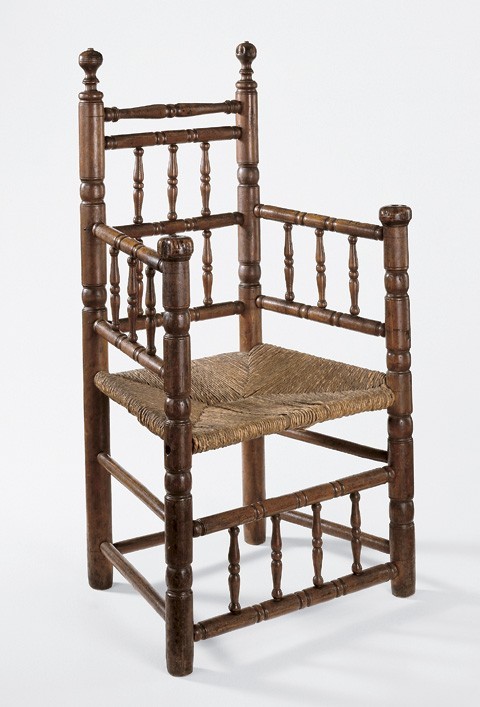
Turned great chair, Plymouth County, Massachusetts, 1695–1710. Maple and ash. H. 41 5/8", W. 23 1/2", D. 19 1/4". (Chipstone Foundation; photo, Gavin Ashworth.) This chair descended in the Russell family of Plymouth, but it reputedly belonged to the Winslow family of Marshfield. It appears to have been painted red originally.
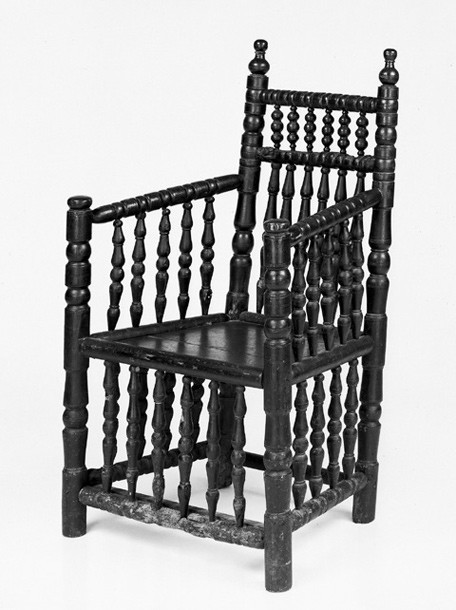
Turned great chair, Netherlands, 1640–1660. Ash. H. 37 3/4", W. 22 1/2", D. 17". (Private collection; photo, John Sinkler.)
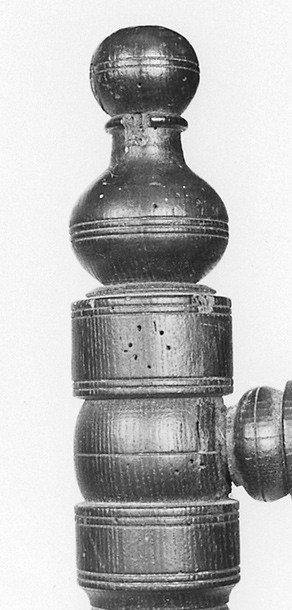
Detail of the finial of the great chair illustrated in fig. 2.

Detail of the vase-ball-vase turning on the rear post of the great chair illustrated in fig. 2.

Detail of the column-ball-column turning on the rear post of the great chair illustrated in fig. 2.
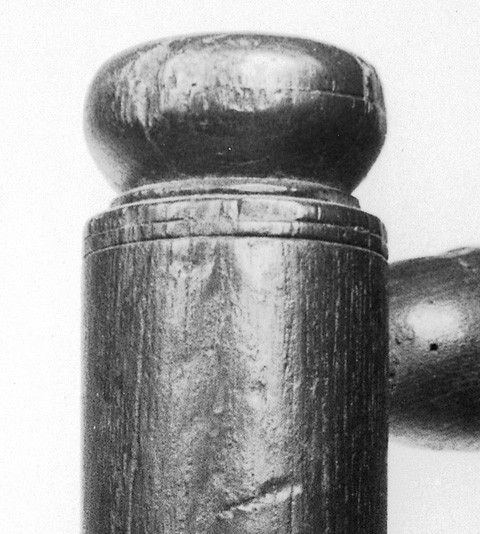
Detail of a pommel on the great chair illustrated in fig. 2.
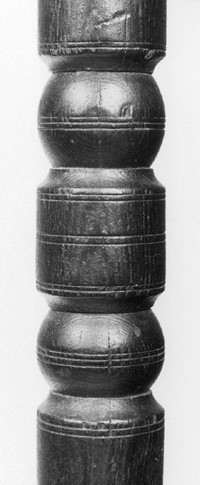
Detail of the ball-with-coves turning on the front post of the great chair illustrated in fig. 2.
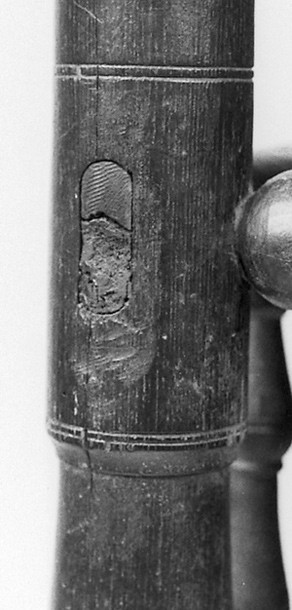
Detail of the front seat joint of the great chair illustrated in fig. 2.
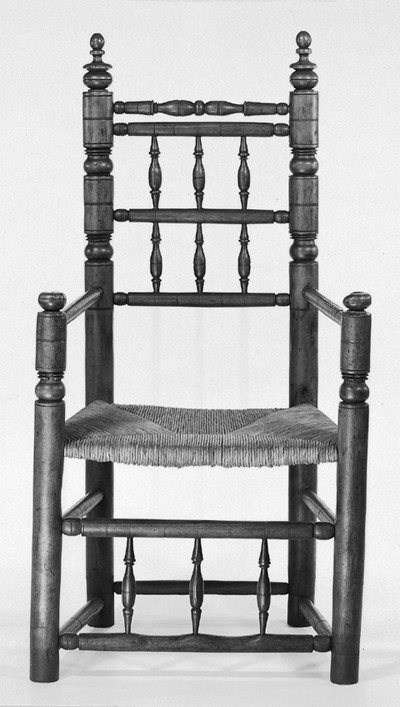
Turned great chair, Boston, 1640–1670. Maple and ash. H. 45 1/4", W. 23 1/4", D. 17 1/2". (Courtesy, Wadsworth Atheneum, Wallace Nutting collection, gift of J. Pierpont Morgan.)
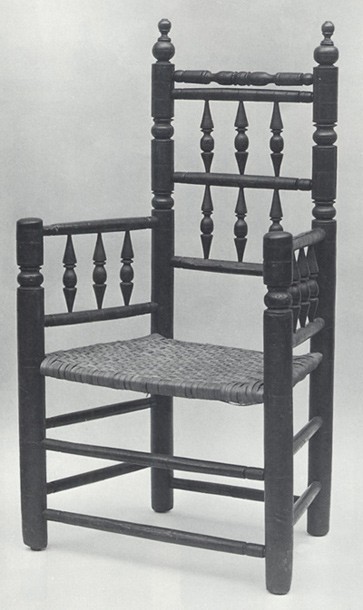
Turned great chair, Plymouth County, Massachusetts, 1660–1685. Maple and ash. H. 45 1/2", W. 24 3/4", D. 17 3/4". (Courtesy, Metropolitan Museum of Art, bequest of Mrs. J. Insley Blair.)
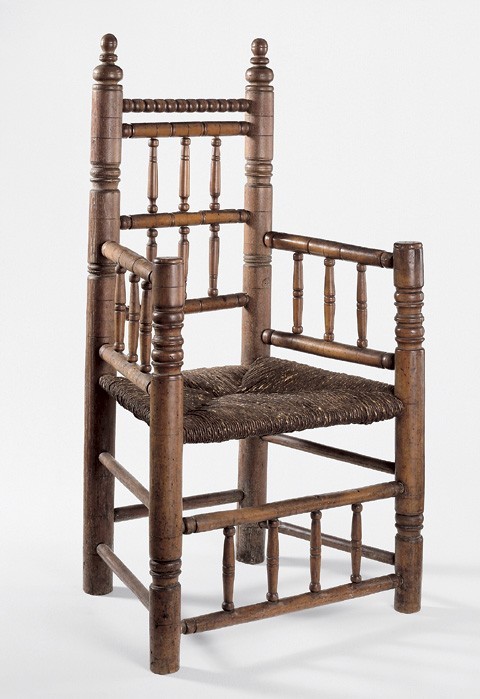
Turned great chair, Plymouth County, Massachusetts, 1660–1685. Maple and ash. H. 44", W. 23 3/4", D. 18 1/2". (Private collection; photo, Gavin Ashworth.) This chair descended in the Bartlett family of Plymouth.
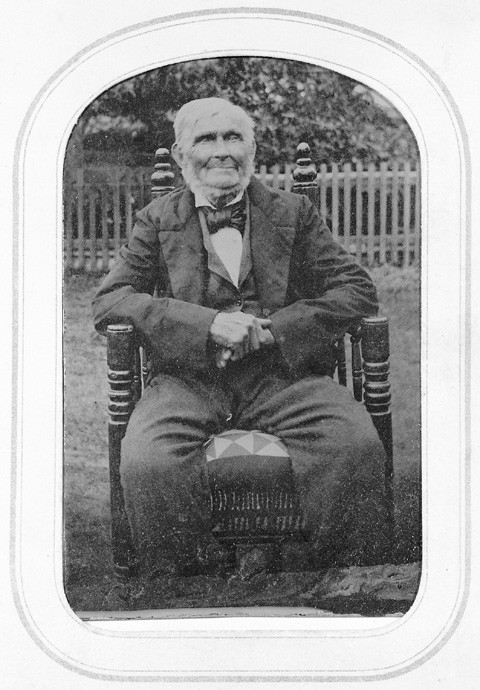
Photograph of Isaac Bartlett, Plymouth, Massachusetts, 1860–1880. Tintype. 3 5/8" x 2 1/4". (Private collection; photo, Gavin Ashworth.) The subject is seated in the great chair illustrated in fig. 11.
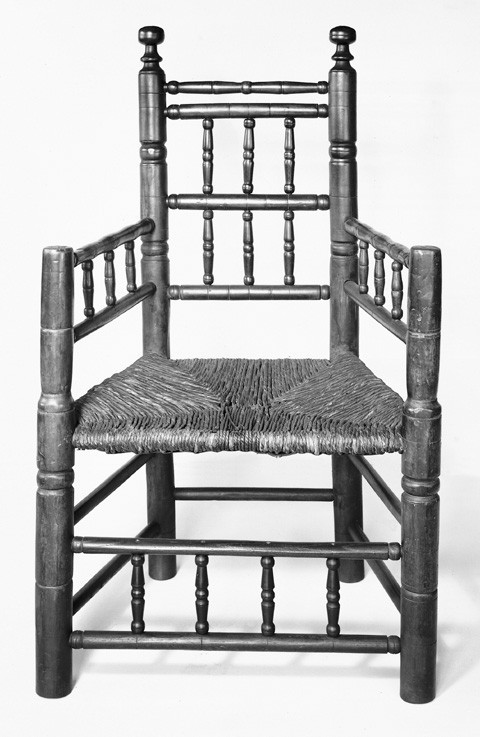
Turned great chair, Plymouth County, Massachusetts, 1695–1710. Maple and ash. H. 42 7/8", W. 25 3/4", D. 18 1/2". (Wadsworth Atheneum, Wallace Nutting collection, gift of J. Pierpont Morgan.)
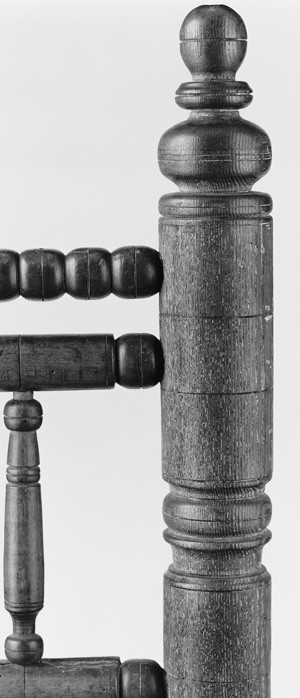
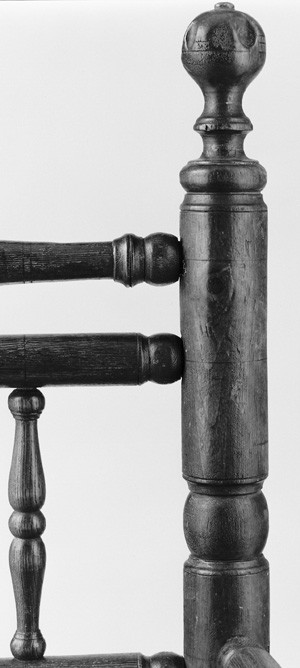
Detail of a vasiform spindle on the great chair illustrated in fig. 1
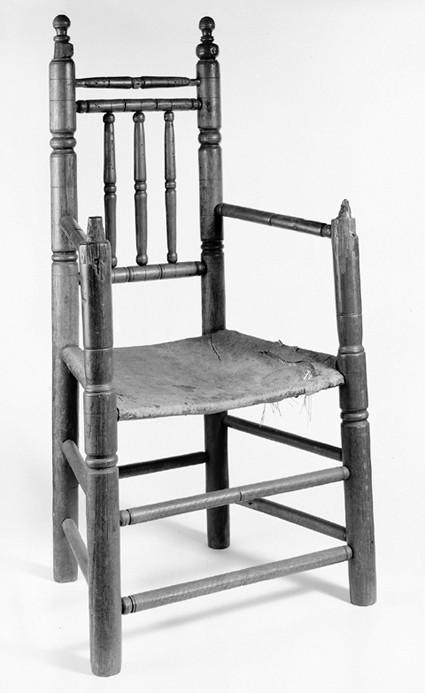
Turned great chair, Plymouth County, Massachusetts, 1695–1710. Maple and ash. H. 46 3/4", W. 25 1/4", D. 17 1/4". (Courtesy, Pilgrim Society, Pilgrim Hall Museum, Plymouth, Massachusetts, gift of Joseph Head; photo, Gavin Ashworth.) This chair has long been known as the Governor John Carver chair. It appears to have been painted black originally.

Turned great chair, Plymouth County, Massachusetts, 1695–1710. Maple and ash. H. 43 1/2", W. 24", D. 15 3/4". (Courtesy, Museum of Fine Arts, Houston, Bayou Bend Collection; gift of Miss Ima Hogg.) This chair reputedly descended in the Ellis family of Carver, Massachusetts.
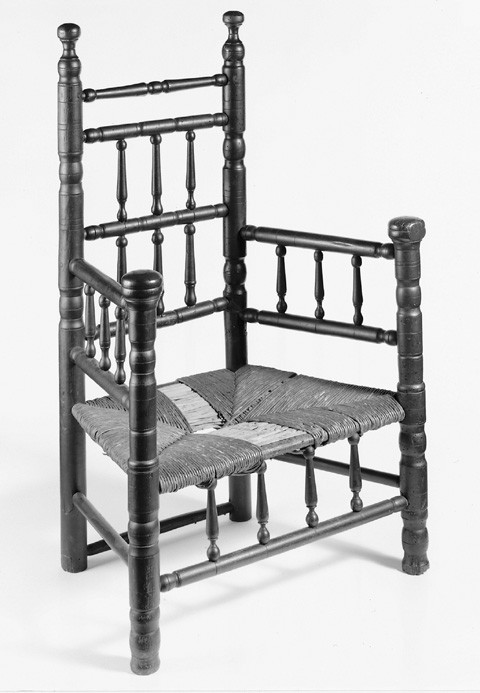
Turned great chair, Plymouth County, Massachusetts, 1695–1715. Maple and ash. H. 42 1/2", W. 25 3/4", D. 17 3/4". (Courtesy, Pilgrim Society, Pilgrim Hall Museum, gift of Joseph Everett Chandler; photo, Gavin Ashworth.) This chair reputedly descended in the Churchill family of Plymouth.
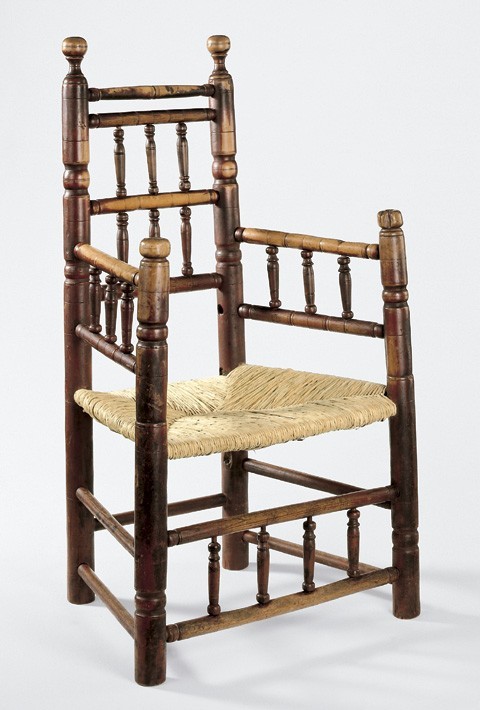
Turned great chair, Plymouth County, Massachusetts, 1705–1720. Maple and ash. H. 41 7/8", W. 24", D. 17 1/2". (Private collection; photo, Gavin Ashworth.) This chair reputedly descended in the Fairbanks family of Dedham and Wrentham, Massachusetts.
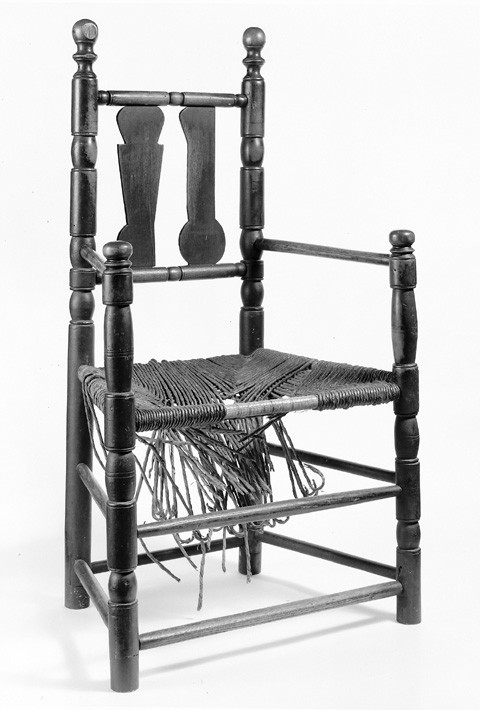
Turned great chair, Plymouth County, Massachusetts, 1715–1730. Maple and ash. H. 45 3/4", W. 24", D. 17 7/8". (Private collection; photo, Gavin Ashworth.)
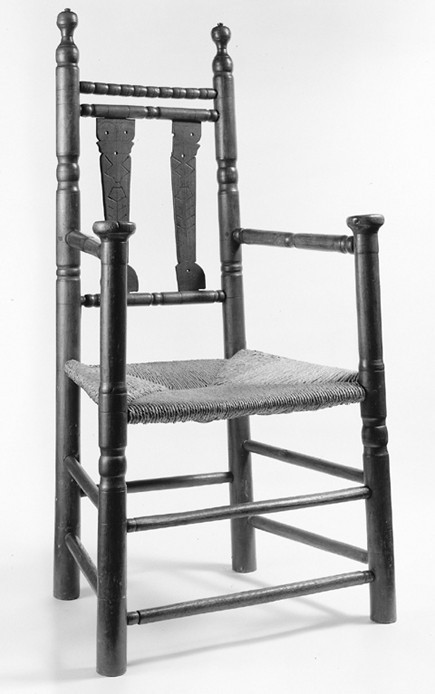
Turned great chair, Plymouth County, Massachusetts, 1715–1730. Maple and ash. H. 41 3/8", W. 23 1/2", D. 17". (Private collection; photo, Gavin Ashworth.)
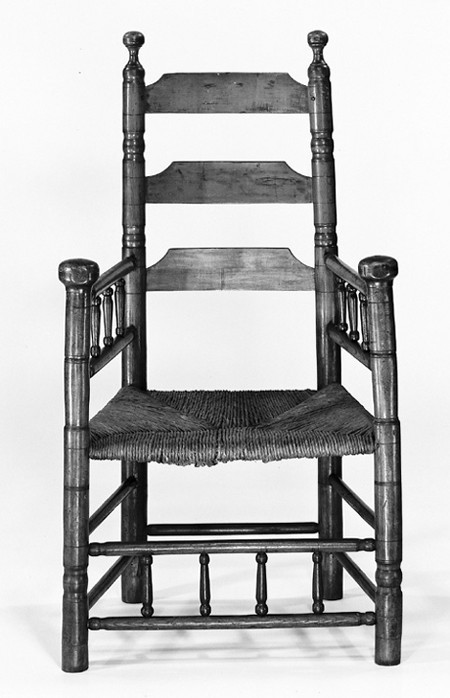
Slat-back great chair, Plymouth County, Massachusetts, 1715–1730. Maple and ash. H. 45 7/8", W. 25 1/4", D. 21". (Wadsworth Atheneum, Wallace Nutting Collection, gift of J. Pierpont Morgan.)
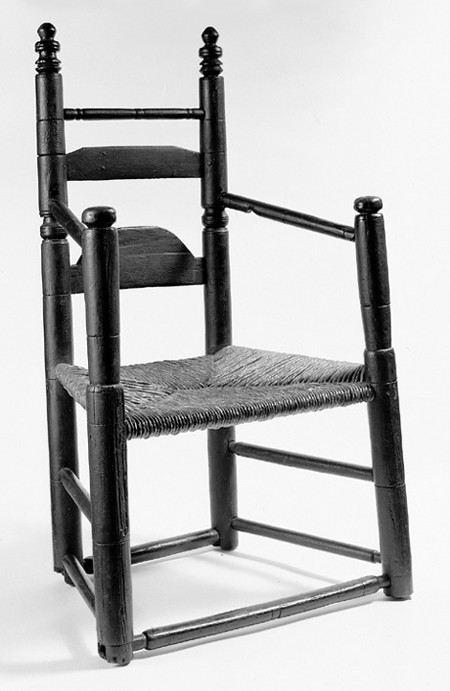
Slat-back great chair, Plymouth County, Massachusetts, 1715–1730. Maple and ash. H. 42 1/8", W. 25 1/8", D. 18". (Private collection; photo, Gavin Ashworth.)
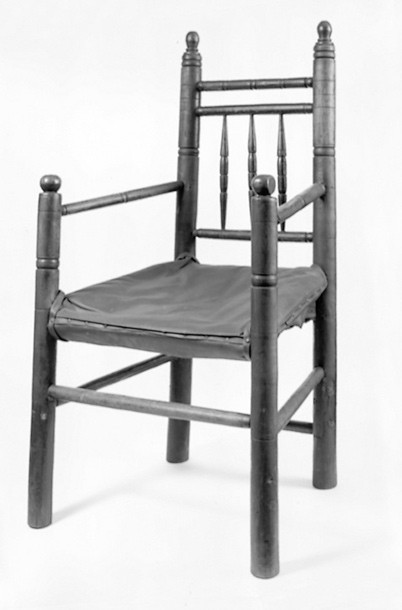
Turned great chair, Plymouth County, Massachusetts, 1715–1730. Maple and ash. Dimensions not recorded. (Courtesy, First Congregational Church of Windham Center, Connecticut, on loan to the Windham Historical Society; photo, Gavin Ashworth.) This chair has long been known as the Governor William Bradford chair.
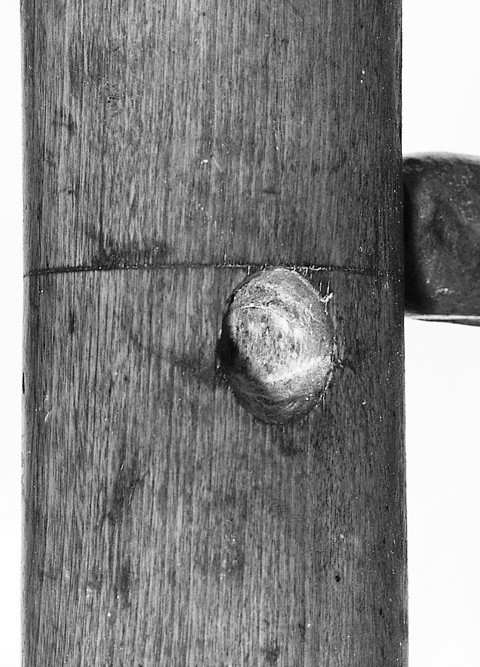
Detail of a misbored mortise hole in the right rear post of the great chair illustrated in fig. 1. (Photo, Gavin Ashworth.)
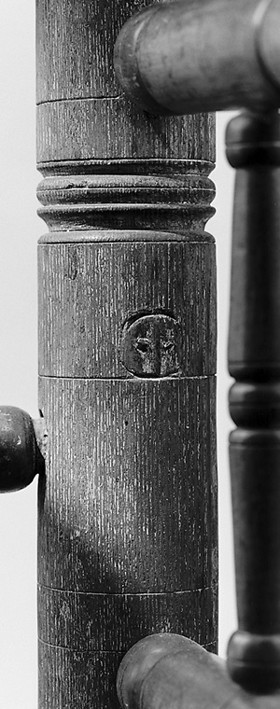
Detail of a misbored mortise hole in the right rear post of the great chair illustrated in fig. 11. (Photo, Gavin Ashworth.)
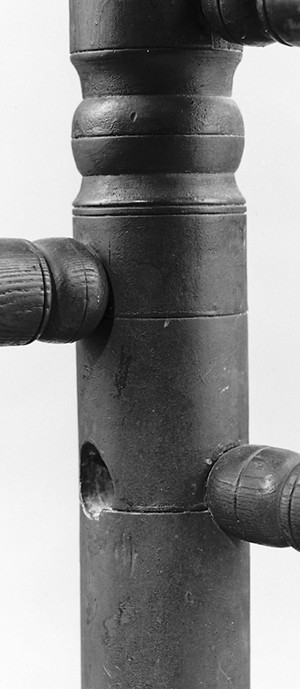
Detail of a misbored mortise hole in the right rear post of the great chair illustrated in fig. 11. (Photo, Gavin Ashworth.)
